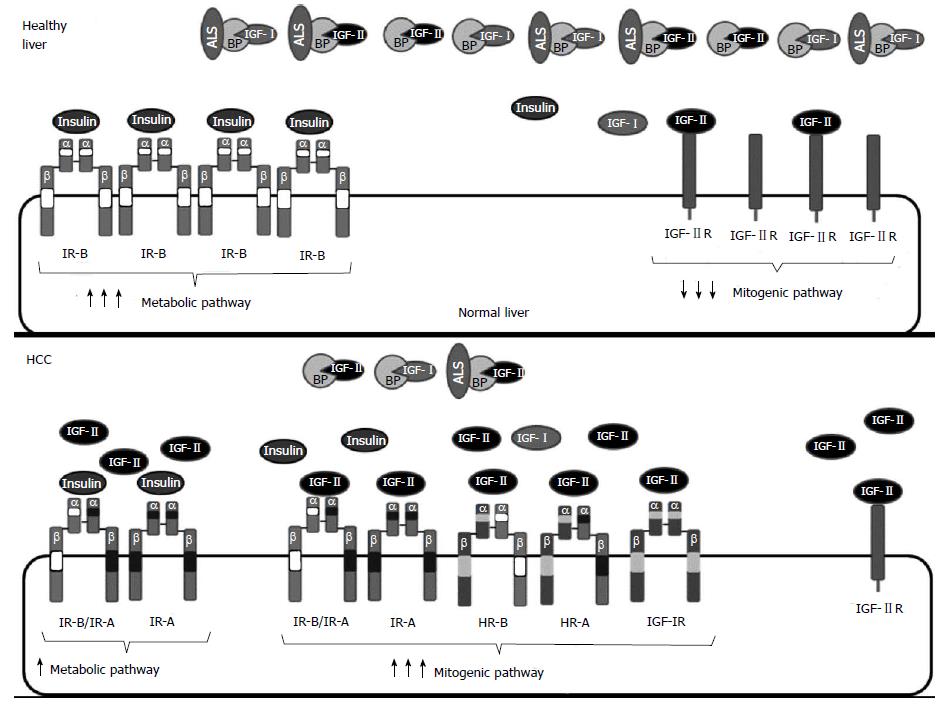Copyright
©2014 Baishideng Publishing Group Inc.
World J Hepatol. Oct 27, 2014; 6(10): 716-737
Published online Oct 27, 2014. doi: 10.4254/wjh.v6.i10.716
Published online Oct 27, 2014. doi: 10.4254/wjh.v6.i10.716
Figure 3 Insulin growth factor system alterations in hepatocellular carcinoma.
Healthy hepatocytes secrete high amounts of insulin growth factor (IGF)-I and express IGF-IIR and IR-B, but do not express IGF-IR. Many HCC are characterized by increased IGF signaling. Such IGF system overactivation is mediated by higher levels of ligands and/or receptors. Levels of functional IGF-II increase in many hepatocellular carcinoma (HCC): (1) by reactivation of the fetal promoter of IGF-II that leads to IGF-II overexpression; (2) by a decrease in circulating IGFBPs that chelate IGF-II; or (3) by decreased degradation through IGF-IIR, which is expressed at lower levels due to aberrant imprinting, loss of heterozygosity or gene deletions. Furthermore, IGF-IR and/or IR-A may be overexpressed in HCC. Overexpression of IGF-IR and IR-A leads to an increase in the formation of homodimeric HR-A or heterodimeric IR-A/IR-B receptors that bind IGF-II with high affinity resulting in decreased metabolic signaling and increased proliferation.
- Citation: Enguita-Germán M, Fortes P. Targeting the insulin-like growth factor pathway in hepatocellular carcinoma. World J Hepatol 2014; 6(10): 716-737
- URL: https://www.wjgnet.com/1948-5182/full/v6/i10/716.htm
- DOI: https://dx.doi.org/10.4254/wjh.v6.i10.716









